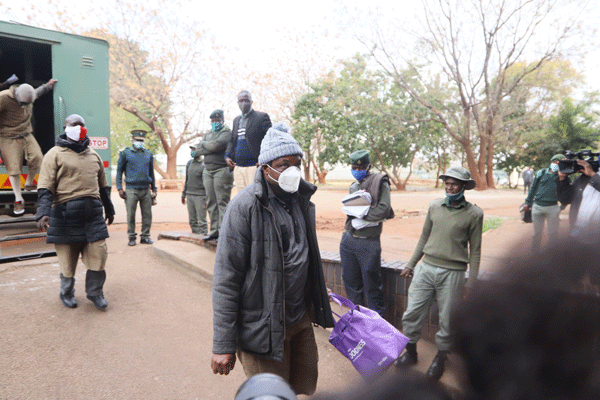
JOURNALISTS in Zimbabwe and the world over have a thankless job, loved by the public but loathed by the authorities, who figure that the media may be an unnecessary evil that they would rather do without.
Today, journalists the world over mark World Press Freedom Day amid mounting challenges and threats not only to their jobs but security and lives in the line of duty on an unprecedented scale.
According to Reporters Without Borders (RSF), 50 journalists from around the world were killed while doing their job.
Why so much death for members of the Fourth Estate whose tools simply include a pen, notebook, recorder and camera, the most non-threatening paraphernalia of any workplace? RSF says their deaths were mostly linked to investigations about graft — public and private, organised crime and coverage of protests.
Before the outbreak of the coronavirus last year, journalists were already facing formidable challenges that included intimidation, threats, arbitrary arrests, assaults, surveillance and disappearance. Authorities have become more closed, and journalists are often confronted by a lack of access to public data that should be freely available.
The COVID-19 pandemic, has simply compounded the existing problems, issues that journalists in this country are familiar with. Zimbabwe is ranked 130 out of 180 countries in the world rankings in 2021 in the 2021 World Press Freedom Index because authorities have made little progress in addressing the concerns raised by the media.
Here is what the RSF had to say about the media in Zimbabwe in 2020: “Hopes of journalistic renewal were further dampened in 2020 when Zimbabwe positioned itself between Nigeria and Uganda on the podium of Africa’s most repressive countries with regard to the coverage of the coronavirus crisis.
“After helping to expose a case of overbilling for medical supplies to combat the pandemic, investigative reporter Hopewell Chin’ono spent most of the second half of the year in prison. His arbitrary detention was a glaring symbol of the government’s failure to turn the page on the years-long predatory behaviour towards Press freedom.
- Chamisa under fire over US$120K donation
- Mavhunga puts DeMbare into Chibuku quarterfinals
- Pension funds bet on Cabora Bassa oilfields
- Councils defy govt fire tender directive
Keep Reading
“The security apparatus has not yet lost the habit of harassing journalists and acts of intimidation, verbal attacks and confiscation of equipment are all still standard practice. The end of the broadcast monopoly long held by the State radio and TV broadcaster ZBC began to seem illusory when licences were granted to TV channels and community radio stations linked to military officers and the ruling party.
“Extremely harsh media laws are still in effect and, when new laws have been adopted, their provisions are just as draconian as those they replaced. Journalists are worried about a cyber-crime Bill that is being drafted because it would allow the security apparatus to legally spy on private conversations.”
Zimbabwe is entering dangerous territory as a result of the Bill, but journalists hope that the appointment of Kindness Paradza, a former journalist himself, as Information deputy minister will help authorities to see that the media can be a partner for development and in the promotion of national dialogue if given its space as the Fourth Estate.











